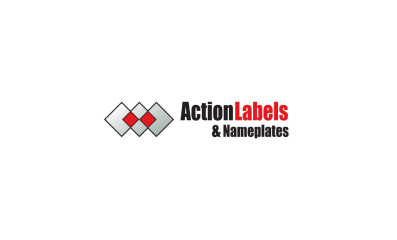Don't wanna be here? Send us removal request.
Text
The Importance of Warning Labels: Protecting Consumers

Warning labels play a critical role in safeguarding consumers and promoting their well-being in various products and contexts. These labels serve as vital communication tools, informing individuals about potential risks, proper usage, and precautions associated with a product. Whether it's a household cleaner, a prescription medication, a power tool, or a food item, warning labels provide essential information that empowers consumers to make informed decisions and avoid harm.
The importance of Warning Labels lies in their ability to mitigate potential hazards and prevent accidents. They offer clear instructions on how to use products safely and avoid misuse, which is especially important for items that could pose dangers if not handled properly. For instance, pharmaceutical labels guide patients on correct dosages and potential interactions with other medications, preventing adverse reactions.
Furthermore, warning labels promote transparency and accountability among manufacturers and producers. By prominently displaying potential risks and side effects, companies demonstrate their commitment to consumer safety and acknowledge their responsibility in providing accurate information.
Effective warning labels also play a role in reducing legal liabilities and litigation. When consumers are adequately informed about potential risks, manufacturers are better protected from legal actions stemming from product-related accidents or incidents.
In summary, warning labels are indispensable tools in protecting consumers. They empower individuals to make safe choices, enhance manufacturers' credibility, and reduce the likelihood of accidents and legal complications. A well-designed warning label not only communicates potential hazards but also embodies a commitment to consumer welfare, fostering trust between producers and consumers in the marketplace.

0 notes
Text
The Importance of Alcohol Labels: Why They Matter

Alcohol labels play a crucial role in ensuring consumer safety and informed decision-making. These labels provide essential information about the contents, potency, and potential risks associated with alcoholic beverages, making them a vital tool for both consumers and regulatory bodies. Here's why alcohol labels matter:
Consumer Awareness: Alcohol labels disclose the alcohol content, serving size, and nutritional information, allowing consumers to make informed choices about their consumption. This knowledge empowers individuals to gauge their alcohol intake and avoid excessive drinking, promoting responsible consumption.
Health and Safety: By highlighting potential allergens and health-related warnings, such as pregnancy risks and interactions with medications, alcohol labels help protect vulnerable populations from harm. They provide critical information that can prevent accidents, injuries, and adverse health effects related to alcohol consumption.
Compliance with Regulations: Alcohol labels are often required by law in many countries. They ensure that producers adhere to specific standards, including accurate product representation and labeling practices. This enables regulatory bodies to monitor the alcohol industry effectively and enforce necessary guidelines.
Brand Transparency: Labels also offer an opportunity for alcohol manufacturers to showcase their commitment to quality and safety. Transparent labeling builds trust with consumers, creating long-term brand loyalty and positive associations.
Responsible Marketing: Ethical alcohol labeling discourages misleading marketing practices and prevents the promotion of alcoholic beverages to underage or vulnerable audiences. Clear labeling helps uphold social responsibility and promotes a healthier drinking culture.
Product Differentiation: Alcohol labels aid consumers in distinguishing between various types and brands of alcoholic beverages. From beer and wine to spirits, each product category carries unique information that aids consumers in finding their preferred choice.
In conclusion, alcohol labels serve as an essential communication tool that enhances consumer awareness, protects health and safety, ensures regulatory compliance, fosters brand transparency, encourages responsible marketing, and facilitates product differentiation. By understanding the importance of alcohol labels, consumers can make informed decisions, and the alcohol industry can uphold its social responsibilities while striving for continuous improvement and adherence to regulations.
For More Information Visit Us-actionlabels.com.au/

0 notes
Text
0 notes
Text
0 notes
Text
0 notes
Text
0 notes
Text
0 notes
Text
Sticky Business Labels
Sticky Business Labels is one of the fastest growing custom label and sticker companies in the United States. They offer a wide range of labels to meet every need, from shipping and asset tags to custom wine labels. Since 1997, they have built a reputation for quality products and customer service. They have a wide range of label sizes and materials, and can custom design labels to match any brand or design.
Some labels feature a removable adhesive, which is ideal for sensitive materials. Labels with this adhesive are easily removed without causing damage to the item. Typically, this type of adhesive is used for product labels on very delicate items or for identifying lots in auction houses. These labels can be produced on matt white paper or other materials.
Other options include custom tape that helps identify the sender of a package and help keep branding consistent. Sticky Business can print both custom and generic tape and will work with you to find a solution that best suits your needs. Sticky Business can help you find the perfect combination of quality and cost for your business.
0 notes